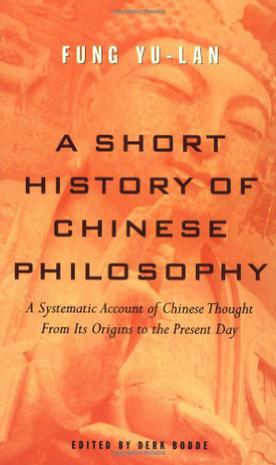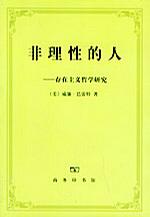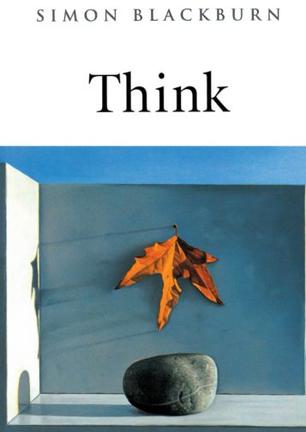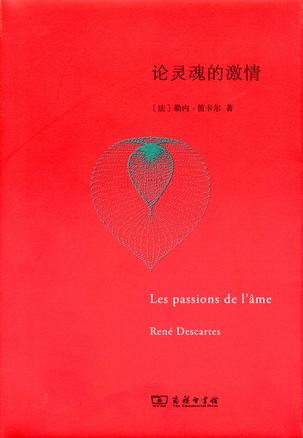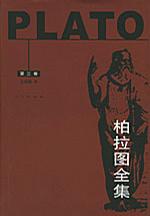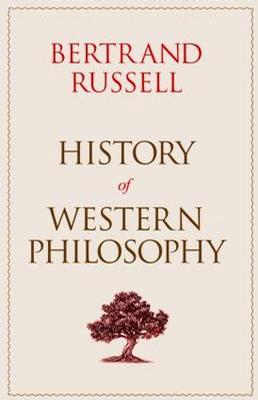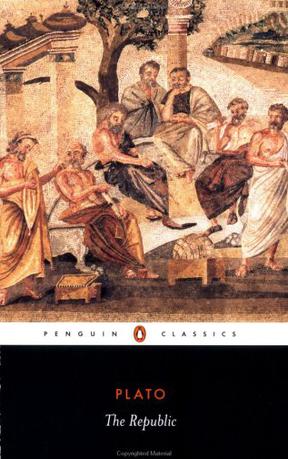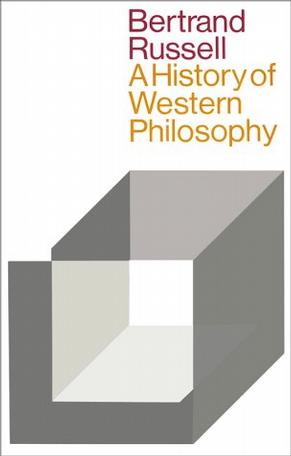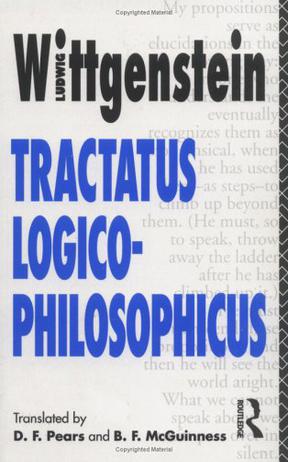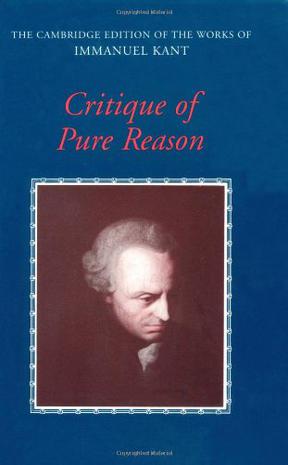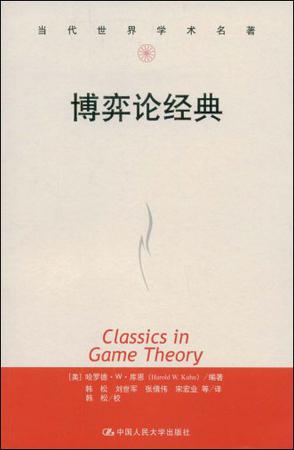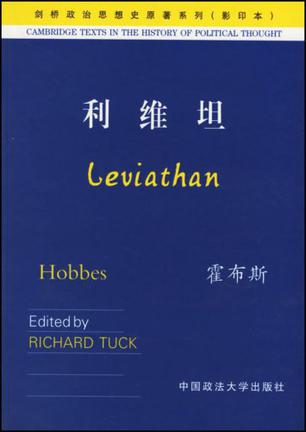欢迎来到相识电子书!
标签:philosophy
-
A Short History of Chinese Philosophy
This is a chronicle of Chinese thought from the third millennium sage-kings to the 1911 overthrow of the monarchical system. It focuses particularly on the most commonly known schools of Confucianism and Taoism, with insights into Mohism, "Yin-Yang", Legalism, New-Taoism and Neo-Confucianism. -
非理性的人
《非理性的人》是一部研究存在主义的专著,在西方有很大的影响,长期以来被英语国家的许多大学作为学习、研究存在主义的课本。本书追溯了存在主义的古代思想中的渊源,分析了存在主义在艺术中的表现以及在中世纪和十九世纪的浪漫主义运动中的反映。书中对克尔凯廓尔、尼采、海德格尔和萨特四个存在主义主要人物进行了专题研究。最后,作者从哲学上论述了存在主义作为一种与理性主义对立的学说和揭示现代社会问题的社会思潮,它的出 -
Justice
Is killing sometimes morally required? Is the free market fair? It is sometimes wrong to tell the truth? What is justice, and what does it mean? These and other questions are at the heart of Michael Sandel's Justice. Considering the role of justice in our society and our lives, he reveals how an understanding of philosophy can help to make sense of politics, religion, morality - and our own convictions. Breaking down hotly contested issues, from abortion, euthanasia and same-sex marriage, to patriotism, dissent and affirmative action, Sandel shows how the biggest questions in our civiv life can be broken down and illuminated through reasoned debate. Justice promises to take readers - of all ages and political persuasions - on an exhilarating journey to confront controversies in a fresh and enlightening way. -
Think
This is a book about the big questions in life: knowledge, consciousness, fate, God, truth, goodness, justice. It is for anyone who believes there are big questions out there, but does not know how to approach them. Think sets out to explain what they are and why they are important. Simon Blackburn begins by putting forward a convincing case for the study of philosophy and goes on to give the reader a sense of how the great historical figures such as Descartes, Hume, Kant, and Wittgenstein have approached its central themes. Each chapter explains a major issue, and gives the reader a self-contained guide through the problems that philosophers have studied. The large scope of topics covered range from scepticism, the self, mind and body, and freedom to ethics and the arguments surrounding the existence of God. Lively and approachable, this book is ideal for all those who want to learn how the basic techniques of thinking shape our existence. -
论灵魂的激情
本书为笛卡尔关于心灵问题的一部重要著作。笛卡尔认为,人是由物质和灵魂两种实体构成的,灵魂的特征是能思而无广延,身体则有广延而不能思,心身相互作用的可能在于身心的交感。这一理论的提出及其矛盾构成了近现代心身问题讨论的焦点,极大地影响了近现代身心理论的进程。 -
柏拉图全集(第三卷)
本书编录了古希腊文学哲人柏拉图的六篇思想性文章,其中《巴门尼德篇》、《斐莱布篇》、《智者篇》和《政治家篇》属于一组对话,彼此相似而与其他对话不同,都是柏拉图最后的重要著作。引导人们透彻了解柏拉图的事业,以及柏拉图身后两千多年柏拉图的哲学思想仍然具有不朽的学术价值。 " -
The Republic (Penguin Classics)
在线阅读本书 Ostensibly a discussion of the nature of justice, The Republic presents Plato's vision of the ideal state, covering a wide range of topics: social, educational, psychological, moral, and philosophical. It also includes some of Plato's most important writing on the nature of reality and the theory of the "forms." Translated with an Introduction by Desmond Lee -
A History of Western Philosophy
Since its first publication in 1945? Lord Russell's A History of Western Philosophy has been universally acclaimed as the outstanding one-volume work on the subject -- unparalleled in its comprehensiveness, its clarity, its erudition, its grace and wit. In seventy-six chapters he traces philosophy from the rise of Greek civilization to the emergence of logical analysis in the twentieth century. Among the philosophers considered are: Pythagoras, Heraclitus, Parmenides, Empedocles, Anaxagoras, the Atomists, Protagoras, Socrates, Plato, Aristotle, the Cynics, the Sceptics, the Epicureans, the Stoics, Plotinus, Ambrose, Jerome, Augustine, Benedict, Gregory the Great, John the Scot, Aquinas, Duns Scotus, William of Occam, Machiavelli, Erasmus, More, Bacon, Hobbes, Descartes, Spinoza, Leibniz, Locke, Berkeley, Hume, Rousseau, Kant, Hegel, Schopenhauer, Nietzsche, the Utilitarians, Marx, Bergson, James, Dewey, and lastly the philosophers with whom Lord Russell himself is most closely associated -- Cantor, Frege, and Whitehead, co-author with Russell of the monumental Principia Mathematica. -
Justice
《公正:该如何做是好?》内容简介:如果为了减轻病人的痛苦而向他提供致命性的药物,你认为这是对生命的亵渎吗?如果一个人的死能换来多数人的生,你会牺牲那个人面让自己和同伴们活下去吗?如果改进汽车的致命缺陷能挽救很多人的生命,你会愿意为此付出高额的改装费用吗?如果-项合同与传统道德桕冲突,法院判决合同无效,你会认为法院的判决是公正的吗?在这个日益物质化的年代,我们的行为选择总在人性和物质性之间摇摆不定。当我们遇到生死抉择的时候。我们常常因为尊重人的基本权利而违背利益最大化的理性原则;因此我们才会认为,19世纪遇险的英国船员为了存活下去杀死并吃掉一个病弱的奴仆,是有悖人道的。但是,当我们口口声声说个人的生命权利至上时,为什么像福特汽车这样的企业却会给生命贴上价格标签?如果我们尊重个体的权利。但为什么大多数人又会反对同性婚姻? 我们的社会、我们的思潮、我们的正义观。正陷入尴尬的两难选择当中。我们甚至怀疑法律是否公正,因为法律无法回避个人的道德判断,无法做到中立。这多少让习惯了传统道德观念和固定思维的我们感到不安,但这种不安,却能让我们的理性精神保持清醒的状态。 我们清醒的理性和人类的良知,会促发我们去寻找有关“公正”的“出路”。这条道路既能体现我们社会规范的人性,又能体现客观性。而这正是“世界最受欢迎的老师之一”的迈克尔·桑德尔教授寻找的有关公正的第三条进路:培养我们每个人的德性,作出我们应该作的、公正的选择。 《公正:该如何做是好?》中文最新超值版火热上市,点击进入 海报: 点击链接进入中文版: 公正:该如何做是好? -
Plato Symposium
"A model of the kind of text one needs for lecture courses: the translation is extremely readable and made even more accessible by intelligent printing decisions (on dividing the text, spacing for clarification, etc.); the notes are kept to a minimum but appear when they are really needed for comprehension and are truly informative. And the introduction admirably presents both basic information and a sense of current scholarly opinion." -- S G Nugent, Princeton University -
THE INTERPRETATION OF DREAMS
Book Description The World Literature series reproduces the greatest books the world over with only the highest production standards. History, philosophy, psychology, political theory, fiction, and ancient texts are now accessible to everyone at an extremely affordable price. This text presents Freud's theory that man is unable to tolerate too much reality, and that dreams are the contraband representations of the beast within man which are smuggled into awareness during sleep. The analysis of dreams is the key to unlocking the vital secrets of the unconscious mind. Synopsis: This groundbreaking new translation of The Interpretation of Dreams is the first to be based on the original text published in November 1899. It restores Freud's original argument, unmodified by revisions he made following the book's critical reception. Reading the first edition reveals Freud's original emphasis on the use of words in dreams and on the difficulty of deciphering them and Joyce Crick captures with far greater immediacy and accuracy than previous translations by Strachey's Freud's emphasis and terminology. An accessible introduction by Ritchie Robertson summarizes and comments on Freud's argument and relates it to his early work. Close annotation explains Freud's many autobiographical, literary and historical allusions and makes this the first edition to present Freud's early work in its full intellectual and cultural context. Amazon.com Whether we love or hate Sigmund Freud, we all have to admit that he revolutionized the way we think about ourselves. Much of this revolution can be traced to The Interpretation of Dreams, the turn-of-the-century tour de force that outlined his theory of unconscious forces in the context of dream analysis. Introducing the id, the superego, and their problem child, the ego, Freud advanced scientific understanding of the mind immeasurably by exposing motivations normally invisible to our consciousness. While there's no question that his own biases and neuroses influenced his observations, the details are less important than the paradigm shift as a whole. After Freud, our interior lives became richer and vastly more mysterious. These mysteries clearly bothered him--he went to great (often absurd) lengths to explain dream imagery in terms of childhood sexual trauma, a component of his theory jettisoned mid-century, though now popular among recovered-memory therapists. His dispassionate analyses of his own dreams are excellent studies for cognitive scientists wishing to learn how to sacrifice their vanities for the cause of learning. Freud said of the work contained in The Interpretation of Dreams, "Insight such as this falls to one's lot but once in a lifetime." One would have to feel quite fortunate to shake the world even once. --Rob Lightner From The New England Journal of Medicine (March 23, 2000) The 100th anniversary of Freud's The Interpretation of Dreams saw the publication of a new translation by Joyce Crick and a "neurophilosophical" treatise on the subject by Owen Flanagan, professor of philosophy, experimental psychology, and neurobiology at Duke University. Taken together, they beg to be read in the light of current ideas about dreams. How far Freud has fallen in the past few decades is clearly reflected in the introduction to the new translation, written by Ritchie Robertson. No, Robertson acknowledges, Freud's theory of dreaming is not scientific; it is not falsifiable, it is embarrassingly sexual and sexist, it undervalues imagery and emotions, and it overvalues verbal repartee. Indeed, Robertson admits, "the scientific study of the mind can proceed with little reference to Freud." Still, he insists, Freud has "helped us to understand the psyche as deep, complex, and mysterious." Is his theory only of historical interest? Freud's own review of the scientific literature of the time suggests that he has not contributed as much as we might think. The content of dreams was already seen by pre-Freudians as determined by previous experiences and as arising in what Ludwig Strumpell referred to as "almost memory-less isolation" from those experiences. Dreams were already seen as bizarre and chaotic, driven, as Freud described the theories of Wilhelm Wundt, by "internal... excitations of the sensory organs." The views of this pre-Freudian scientific community were remarkably similar to those held by neurobiologists and cognitive neuroscientists today. What, then, did Freud add to the study of dreams? Beautiful literature, but mostly bad theory and methodology. Dreams serve to discharge pent-up energy associated with unsatisfied infantile wishes. Dream construction follows a tortured path, with the condensation of many ideas into one and the displacement of their "energies" to unrelated images, all to keep the forbidden wishes from reaching consciousness. Freud's interpretations are stunning: a woman's dream about going to Italy (gen Italien -- to Italy) reflects a hidden wish concerning genitals (Genitalien). Why? Because it is obvious. One is reminded of Plato's "proof" in the Republic that the philosopher-king leads a life that is 729 times more pleasant than that of a tyrant. All in all, Freud's theory of dreams can probably best be described as 50 percent right and 100 percent wrong. Many of his observations about dreams (not their interpretation) are insightful. If viewed as a historical work, perhaps metaphorically, The Interpretation of Dreams can be enjoyable and thought-provoking. But those looking for a scientific explanation of dreaming had best look elsewhere. Even those seeking to use dream interpretation as a clinical tool deserve a more useful model, one more consonant with modern scientific theory. A hundred years after Freud, we seem to be back where he started. In Dreaming Souls, Flanagan seeks to answer philosophical questions about dreaming in the light of what we know about neurobiology. Still, when he talks about dreaming, he is referring specifically to the conscious experience of dreaming, with or without subsequent recall on waking, and not to the underlying physiology of the dreaming state. Although this minimal and somewhat naive attention to physiology is disappointing, it does not make his book uninteresting. Consciousness, he proposes, evolved to solve specific problems, such as how to permit the selective allocation of limited brain resources to just one of many competing sensory inputs -- what we call "attention." What, one might ask, does consciousness offer that the underlying neurophysiology could not handle equally well? Perhaps, Flanagan seems to suggest, consciousness just happened to appear before a "mindless" physiologic alternative did, and it worked well enough. Maybe consciousness and emotions represent just one of many solutions that could have evolved to deal with these problems. Perhaps (and it is a terrifying thought) consciousness could just as easily not have evolved. What about dreaming? This, Flanagan argues, is merely an unintended side effect of waking consciousness; evolution forgot to turn the conscious mind off at night, resulting in dreams that "neither help nor hinder fitness." For Flanagan, the neurobiologic processes underlying consciousness in both waking and sleeping states are of only passing interest and may be, in the end, unimportant. He clearly feels that cognitive processing during sleep serves no evolutionary value, a position that flies in the face of most recent research (for example, on sleep and consolidation of memory). What, then, is sleep for? Flanagan seems to fall back on an old suggestion of Allan Hobson's, that sleep merely serves to allow stockpiles of neurotransmitters in the brain to be replenished. Such an explanation woefully underestimates both the cost and the value of sleep. Still, Flanagan provides a fascinating view of dreaming from the perspective of a modern philosopher. He presents an elegant explication of how dreams, constructed through a chaotic process without intent on the part of the dreamer, can not only still have meaning, but also be self-revealing and useful as well. Even if the experience of dreaming (as opposed to its underlying physiology) arose without evolutionary selection, he argues, it does not follow that dreams are meaningless or that dreaming is useless. Much of what we are was never selected for -- the abilities to solve partial differential equations and to write sonnets and soliloquies were not selected by evolutionary pressures. What we are and what we have evolved to be are not the same. Destiny is not biology, and dreams are not just noise produced by the sleeping brain. Flanagan's provocative commentary would make quick and enjoyable reading for anyone interested in the thoughtful study of dreaming and may yet provide the basis for a new framework for understanding what dreams mean and how they can be used: the goal of dream interpretation. But the big scientific questions remain unanswered. What is the role of sleep in cognitive and emotional processing? How do we integrate these physiologic processes with the phenomenology of dreaming? The time is ripe to address these questions. What might answers to these questions look like? Over the past 10 to 15 years, cognitive neuroscience has proved the existence of multiple, physically distinct memory systems, including working-memory, episodic-memory, and semantic-memory systems. As a consequence, the old idea of consolidating short-term memories into long-term memories has expanded to include concepts of transferring memories from one system to another and then integrating them into complex associative networks. New research suggests that these activities may depend on sleep and might even be the main function of sleep. Processes of memory transfer and integration occur both intentionally (through the frontal cortex) and automatically (through "self-organizing" bottom-up processes). These processes are more complex and more time-consuming than simpler forms of memory consolidation, and they appear to use the same brain regions required for sensory processing. Taken together, they beg for a state in which sensory input is blocked and conscious control of cognitive and affective processing is turned off. Although such a state would be optimal for the automatic reactivation and reprocessing of ensembles of preexisting memories, it would leave the organism dissociated from its environment and unable to interact with it safely. By adding immobility to these other conditions, sleep makes this state of "off-line" memory reprocessing both safe and effective; herein lies the evolutionary pressure for sleep. This, perhaps, is the beginning of a theory worth consideration by neurobiologists, cognitive scientists, and philosophers alike, and the questions it raises are both important and exciting. How would the reliable changes in chemical neuromodulation that are dependent on the stage of sleep, sensory-input gating, generation of electroencephalographic waves, and regional brain activation facilitate off-line memory reprocessing? Which component parts of such a memory-reprocessing system would each sleep stage support? For example, during rapid-eye-movement (REM) sleep, distant and unpredictable cortical associations, but not episodic memories, appear to be preferentially activated, leading to the bizarre, symbolic, and hyperemotional narratives found in classic dreams. In contrast, during non-REM sleep, mentation is generally more linear and thoughtlike. How and why would the brain modulate memory-reprocessing systems in these ways? And, finally, what function, if any, might our conscious awareness of this reprocessing -- what we call dreaming -- serve? I hope that the answers to these questions are not too far away. Reviewed by Robert Stickgold, Ph.D. From AudioFile Freud's most famous and polemic book presents a challenge to narrator Robert Whitfield, who interprets the heavy rhetoric with dispatch and precision, while relating the fascinating dreams with expressive interest and skill. The German text is translated into unstilted English, but the remaining French allows Whitfield to exploit his bilingual ability. Modern medicines have made psychoanalysis less popular than in its heyday, but the impact of Freudian theory on our civilization can never be ignored. For the curious and the serious, Whitfield aptly augments the exploration of this classic book just as a guide aids the tour of an old church. J.A.H. From Library Journal This volume of essays (part of a new series) reflects a wide range of disciplines: sociology, history, literature, and philosophy. Several are works of historic importance by major thinkers, including Wittgenstein and Erikson. Others are more recent works informed by modern thinkers, most notably Lacan. Though of limited appeal to the lay reader in its assumption of a working knowledge of Freud's dream work and its failure to link the essays, the book will interest scholars, particularly those in the humanities concerned with psychoanalysis. Several essays, particularly Meredith Skura's concerning the literary use of dream interpretation, are outstanding commentaries on Freud's landmark work. Paul Hymowitz, Psychiatry Dept., Cornell Medical Ctr., New York About Author Sigmund Freud was born in 1856 at Freiburg in Moravia and died in London in 1939. He embarked on medical studies in Vienna, working at the same time at the Institute for Cerebral Anatomy. Financial circumstances compelled him to postpone his prime interest, pure research, and he became a clinical neurologist. In 1884 he was introduced by Dr. Josef Breuer, a Viennese physician, to the "cathartic" method of treatment of hysteria, which was the starting point of what later became psychoanalysis. Studies in Hysteria was the result of Freud's and Breuer's collaboration in this area. Freud then went on alone to work at "psychoanalysis," examining the structure, nature, and diseases of the mind. As a result of his studies in literature, art, mythology, and religion, he found further evidence to support the revolutionary theories he had discovered in therapeutic practice. The Interpretation of Dreams was first published in 1900. Freud wrote of it in 1931: "It contains, even according to my present-day judgment, the most valuable of all the discoveries it has been my good fortune to make. Insight such as this falls to one's lot but once in a lifetime." Book Dimension : length: (cm)19.8 width:(cm)12.6 点击链接进入中文版: 梦的解析 -
Tractatus Logico-Philosophicus
Perhaps the most important work of philosophy written in the twentieth century, the Tractatus Logico-Philosophicus first appeared in 1921 and was the only philosophical work that Ludwig Wittgenstein published during his lifetime. Written in short, carefully numbered paragraphs of extreme compression and brilliance, it immediately convinced many of its readers and captivated the imagination of a generation of philosophers. Influencing the Logical positivists of the 1920s and 1930s, the book later went to grip the minds of many other philosophers, convincing many that propositions were pictures of reality. In this edition, David Pears and Brian McGuinness have completely revised their translation based upon Wittgenstein's own suggestions and comments in his correspondence with C. K. Ogden, Wittgenstein's first translator. In addition, this edition contain the introduction by Bertrand Russell which appeared in the original English. Language Notes Text: English (translation) Original Language: German -
Philosophical Investigations
Product Description Ludwig Wittgenstein's Philosophical Investigations presents his own distillation of two decades of intense work on the philosophies of mind, language and meaning. When first published in 1953, it immediately entered the centre of philosophical debate, and achieved a classic status it has retained ever since. This revised German–English edition is published on the fiftieth anniversary of Wittgenstein's death. It incorporates final revisions by G. E. M. Anscombe (1919–2001) to her original English translation. -
Critique of Pure Reason
This entirely new translation of Critique of Pure Reason is the most accurate and informative English translation ever produced of this epochal philosophical text. Though its simple and direct style will make it suitable for all new readers of Kant, the translation displays an unprecedented philosophical and textual sophistication that will enlighten Kant scholars as well. This translation recreates as far as possible a text with the same interpretative nuances and richness as the original. The extensive editorial apparatus includes informative annotation, detailed glossaries, an index, and a large-scale general introduction in which two of the world's preeminent Kant scholars provide both a succinct summary of the structure and argument of the Critique and a detailed account of its long and complex genesis. -
博弈论经典
《博弈论经典》收集了自约翰·冯·诺伊曼(JohnVon Neumann 和奥斯卡·摩根斯坦(Oskar Morgen stern)出版《博弈论与经济行为》(普林斯顿,1944)以来,对这一领域具有基础贡献的经典文章。博弈论最先由冯·诺伊曼在1928年的文章中给出了严格的公式表述,是数学和经济学的分支,它是用来模型化个人间竞争与合作的重要分析工具。该研究的“英雄时代”开始于20世纪40年代后期,并奠定了现代理论的基础。在过去的15年里,博弈论已成为经济理论的主流模型,并且对政治科学、生物学和国际安全研究作出了重大贡献。博弈论在经济理论中的重要作用的见证是:1994年的诺贝尔经济学奖颁发给先驱的博弈论家约翰·C·海萨尼,约翰·纳什和莱茵哈德·泽尔滕。他们获奖的基础研究都包含在这《博弈论经典》中。 哈罗德·库恩他自己因为对扩展型博弈的重新表述而对博弈论作出了巨大贡献,《博弈论经典》精选了对现代博弈论具有核心贡献的18篇文章。从各方面来说,它们对从事博弈论的研究者,对于经济学、政治科学和生物学的学生来说,其价值是无限的。 -
偶像的黄昏
偶像的黄昏,ISBN:9787800919060,作者:(德)F.W.尼采(Friedrich Wilhelm Nietzche)著;周国平译 -
利维坦
Thomas Hobbes s Leviathan is arguably the greatest piece of political philosophy written in the English language.Written in a time of great political turmoil(Hobbes s life spanned the reign of Charles l ,the Civil Wars,the Commonweaalth and the Protectorate,and the Restoratin),Leviathan is an argument for obedience to authority grounded in analysis of human nature. Since its fiist pust publication in 1991 Richard Tuck s edition of leviathn has been recognised as the single most accurate and authoritative text,and for this revised edition professor Tuck has provided a much-amplified and expanded introduction,which will provide students unfamiliar with Hobbes with a cogent an accessible introduction to this most challenging of texts.Other vital aids to study include an extensive guide to further reading ,a note on textual matters,a chronology of important events and brief biographies of important persons mentioned in Hobbes s text. Richard Tuck is Professor of Government at Harvard University. -
人,诗意地安居
本书从海德格尔基本著作中精选160余条语段,分为“存在的真理”、“思想的任务”、“语言是存在的家”、“人,诗意地安居”、“技术和人的命运”五部分,另附三篇重要论文,大致勾勒出海错思想的轮廓,有助于读者更好地接近其邈无涯际的思想王国。 -
Tuesdays with Morrie
Maybe it was a grandparent, or a teacher or a colleague. Someone older, patient and wise, who understood you when you were young and searching, and gave you sound advice to help you make your way through it. For Mitch Albom, that person was Morrie Schwartz, his college professor from nearly 20 years ago. Maybe, like Mitch, you lost track of this mentor as you made your way, and the insights faded. Wouldn't you like to see that person again, ask the bigger questions that still haunt you? Mitch Albom had that second chance. He rediscovered Morrie in the last months of the older man's life. Knowing he was dying of ALS - or motor neurone disease - Morrie visited Mitch in his study every Tuesday, just as they used to back in college. Their rekindled relationship turned into one final "class": lessons in how to live. This is a chronicle of their time together, through which Mitch shares Morrie's lasting gift with the world.
热门标签
下载排行榜
- 1 梦的解析:最佳译本
- 2 李鸿章全传
- 3 淡定的智慧
- 4 心理操控术
- 5 哈佛口才课
- 6 俗世奇人
- 7 日瓦戈医生
- 8 笑死你的逻辑学
- 9 历史老师没教过的历史
- 10 1分钟和陌生人成为朋友

